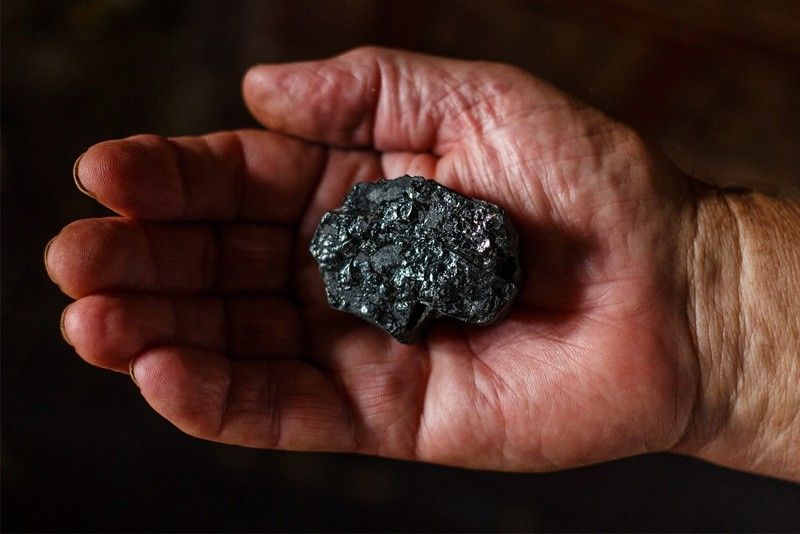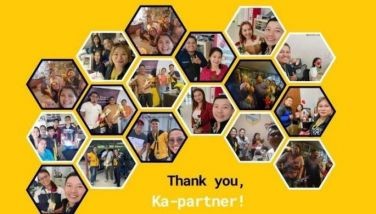Commentary: New mining fiscal regime

Sen. Sonny Angara, Chairman of the Senate Committee on Ways and Means, recently issued a Notice of Public Hearing on January 29 to discuss the Fiscal Regime and Revenue Sharing Arrangement for the Mining Industry. This comes after House Bill 8400, which was approved on third reading late last year in the Lower House, was transmitted to the Senate for deliberations.
It seems that the industry and government may soon find a compromise that can would release billions of dollars in Foreign Direct Investments that have been stuck in a policy gridlock for decades.
House Bill 8400 seeks to rationalize and institute a single fiscal regime applicable to all mineral agreements. The House version imposes a range of royalties applied to income from mining operations.
This includes a 1-5 percent margin-based royalty tax on large-scale mines outside of mineral reservations, depending on operation margins, a 1-10 percent windfall profits tax on income from mining operations, 3 percent royalty tax on gross output on mines inside mineral reservations, 4 percent excise tax on gross output, and ring-fencing and maximum debt to equity ratio.
Having gone through a long process of consultation and debates, it has finally resulted in a draft legislation feasible to the mining industry and a promising development in the mining sector.
The bill when passed into law would effectively lift Executive Order 79, issued in 2012, which imposed a moratorium on the approval of new mining permits.
In 2016, potential large-scale mining projects could have amounted to US$ 23 billion in foreign direct investments (FDI)—a quick estimate of the direct value of the mineral resources and does not yet consider the multiplier effect to the local and national economy when these projects are in full operation.
Among the huge FDIs that have been put on hold is the USD 5.9-billion Tampakan project in South Cotabato. The copper-gold deposit is said to be one of the largest undeveloped deposits in the world, with 2.94 billion tonnes of ore with 0.6 percent copper and some 18 million ounces of gold.
There is also Mindoro Nickel’s US$ 2.5-billion project that reportedly has some 2.9 million tonnes or 6.6 billion pounds of nickel. Philex Mining’s Silangan project in Surigao del Norte projects an estimate of 4.94 billion pounds of copper and 9 million ounces of gold, valued at P752 billion and P605 billion, respectively.
Other pending multi-billion-dollar investments include Nadecor’s Kingking project in Davao del Norte, Davao Oriental’s Asiaticus project, Lepanto Mining’s FSE project in Benguet, and Masbate’s Philsaga Mining contract, among others. Because of these suspensions, once contributing 5 percent to the national economy, mining is now down to 1 percent.
EO 79 had therefore been a policy wall, having done more harm than good, and continues to frustrate much-needed quality investments in the mining industry. On the bright side, government is beginning to review existing policies, aside from HB 8400, on open pit mining, rehabilitation fund, and mineral taxation, among others, and improve the wider policy uncertainty in the country.
The inter-agency Mining Industry Coordinating Council itself has also recommended the lifting of the open pit ban in the country once mining laws, rules, and regulations are strictly enforced.
The Department of Environment and Natural Resources, with Secretary Roy Cimatu in the helm, is open to allowing new mining projects in the country and continuously consults and collaborates with industry experts to thoroughly understand the complex technical, social, and environmental issues in the sector.
After all, an industry with this huge FDI potential and complex will be governed by scientific and balanced policy backed by technical and scientific inputs and not misguidedly influenced by an ideology. Of course, government also needs to raise the bar by strengthening monitoring and compliance so all of these efforts of revitalizing the industry don’t go down the drain.
UP School of Economics professor Ramon Clarete argued that attracting high-quality investments is the crucial first step in building and sustaining a competitive mining sector. These quality investments come from companies that have the technical know-how and capital necessary to harness these resources in a way that is cost-efficient and integrates environmental protection.
To wit, there are mining corporations in the forefront of self-regulation, strict compliance, environmental stewardship, and voluntarily submits to international benchmarks.
Philex Mining Corporation’s Silangan project demonstrates such strict compliance in addressing concerns about open pit mining and adheres to the principles of responsible mining—technical feasibility, environmentally compliant, socially acceptable and financially viable.
There are also other models of successful rehabilitation, such as the wild duck sanctuary of what was the tailings pond of Philex’s Bulawan Mine; Sitio Lalab,also by Philex, which has become greener than ever before as a result of the rehabilitation of Sibutan Gold mine in Zamboanga del Norte; and Nickel Asia’s nickel mines in Taganito, Surigao del Norte and Bataraza, Palawan, which even former Secretary Gina Lopez commended as benchmarks for mining.
All of these show that open pit mines can be safely operated, rehabilitated and transformed to benefit local communities for generations.
The Philippine mineral profile is globally recognized for billions worth of untapped potential. If done right, energizing the mining sector can mean multi-billion dollars’ worth of investments in many communities that had remained poor and isolated for decades.
What seemed like a long shot years ago, responsible mining can be instrumental in building the foundations of sustainable economic growth. Let’s just hope that government sees this through and gear us up for generations to come.
Vanessa Pepino is a non-resident fellow of think tank Stratbase ADR Institute, a partner of Philstar.com.
- Latest





























